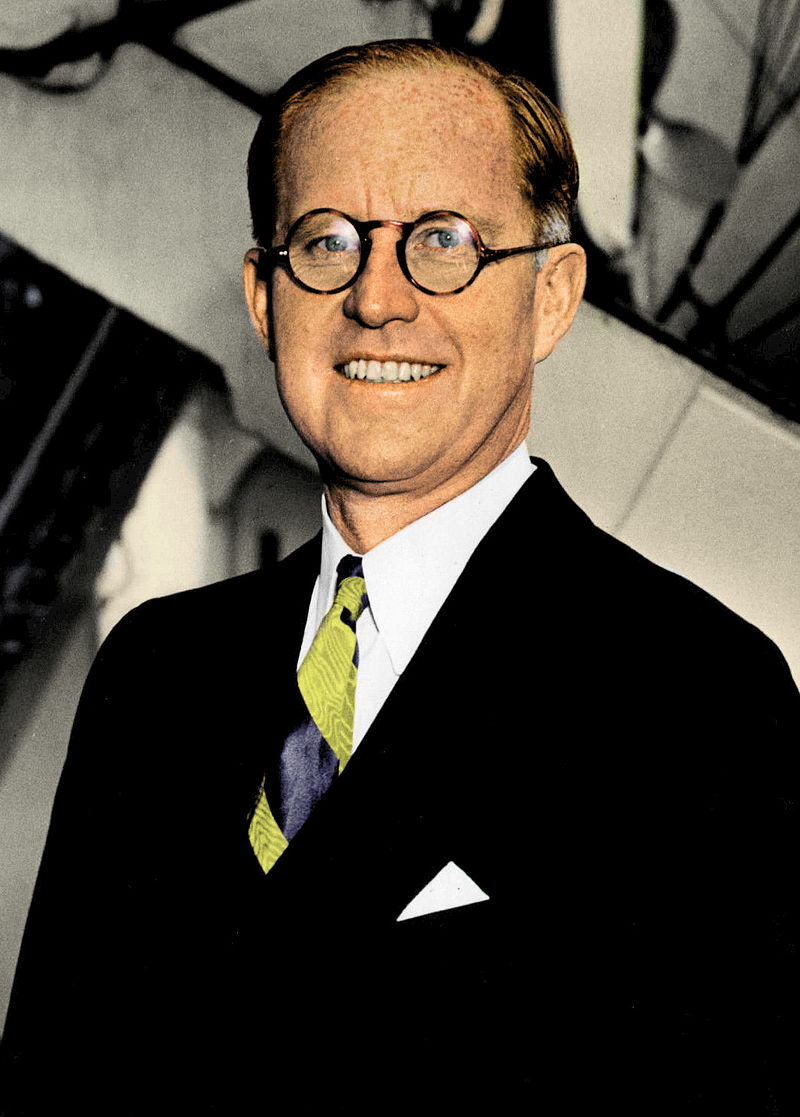
So, aren’t you going to ask the obvious question? I will: was Joseph P. Kennedy trying to get the US to assist the Nazis during The Battle of Britain?
I never thought of that question. Thanks for reminding me. ![]()
White the extent of his Nazi sympathies are debatable at best, I’m almost certain that he never asked for U.S. assistance to either the Nazis or Great Britain during the Battle of Britain, at least to the best of my knowledge. The American public was divided on the issue of involvement even when confronted with the stories of Britain’s plight. And ol’ Joe was well into the isolationist camp.
He wasn’t a big fan of Great Britain though, to the point where the British Government disparaged him as a defeatist.
Kennedy, looking at the situation, said this in the Boston Sunday Globe (11-10-40).
Democracy is finished in England. It may be here (in the United States).
and…
It’s all a question of what we do with the next six months. The whole reason for aiding England is to give us time … As long as she is in there, we have time to prepare. It isn’t that [Britain is] fighting for democracy. That’s the bunk. She’s fighting for self-preservation, just as we will if it comes to us. … I know more about the European situation than anybody else, and it’s up to me to see that the country gets it.
Another question: Why did FDR appoint him Ambassador to the Court of St. James anyways? Appointing someone like Joe Kennedy must have been an enormous slap in the face to Britain. I’ve heard that Joe Kennedy had a low opinion of De Valera, but Ireland would have made a lot more sense.
Kennedy was a Roosevelt supporter, at least up to that point. When he was appointed, he was the chairman of the Maritime Commission. Roosevelt never made it completely clear the reasons for Kennedy’s appointment, though by 1940, Roosevelt was somewhat annoyed by Kennedy’s actions as Ambassador.
Honestly, I’m just as baffled as you are. Why wasn’t he appointed the Ambassador of Ireland if he was this apathetic toward the British? Maybe, it’s the historical Irish grudge against the British. I don’t know.
Then again I’m speaking from hindsight. It’s possible that FDR didn’t know the full extent of Kennedy’s thoughts about the British. The Irish-American community, nonetheless, was very pleased with this decision to make one among their kind the Ambassador to Great Britain. In Roosevelt’s mind, Kennedy was a diplomat well experienced enough at home and abroad to be Ambassador.
Also, Kennedy was appointed Ambassador in early 1938. At this point, Britain still preferred the option of appeasement over war. So, Roosevelt probably never thought much when appointing Kennedy.
Yes, but merely appointing someone of Irish-Catholic ancestry would have been an enormous statement at the time. I think Kennedy’s appointment may have been related to Edward VIII’s reign, but I have never been able to prove it. All of the evidence that I have found suggesting that FDR wanted Joe Kennedy because of his ability to cozy up to Edward VIII is circumstantial.
It’s unlikely that Edward VIII was an influence because he abdicated his throne two years prior to Kennedy’s appointment.
Also,
but merely appointing someone of Irish-Catholic ancestry would have been an enormous statement at the time.
Yes, it certainly was. I remember when I began as an historian, I suggested that this was a noteworthy example of identity politics. Or it could just be FDR being FDR.
I’ve also always wondered about JFK’s College Thesis where he defended Chamberlain’s Appeasement Policy: I’ve always thought the Joe’s influence had a big impact on the thesis.